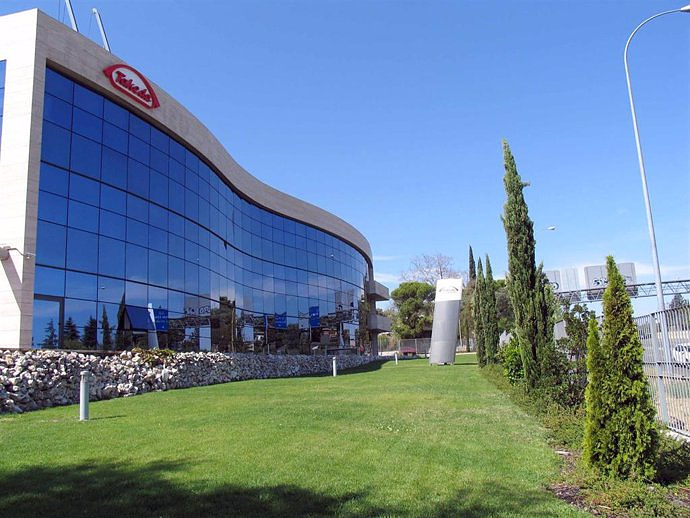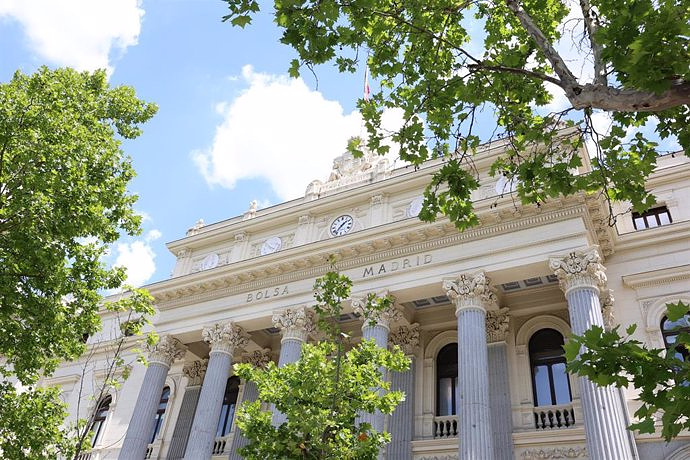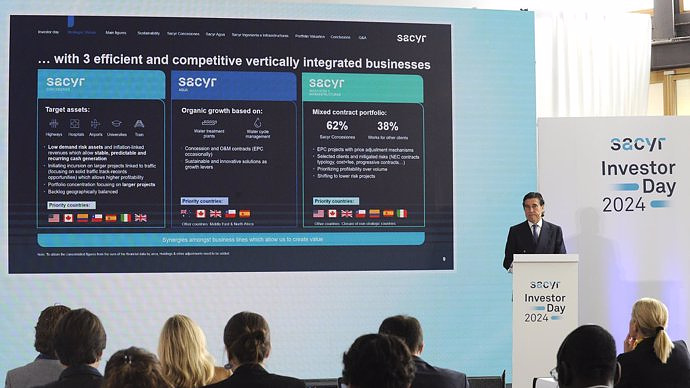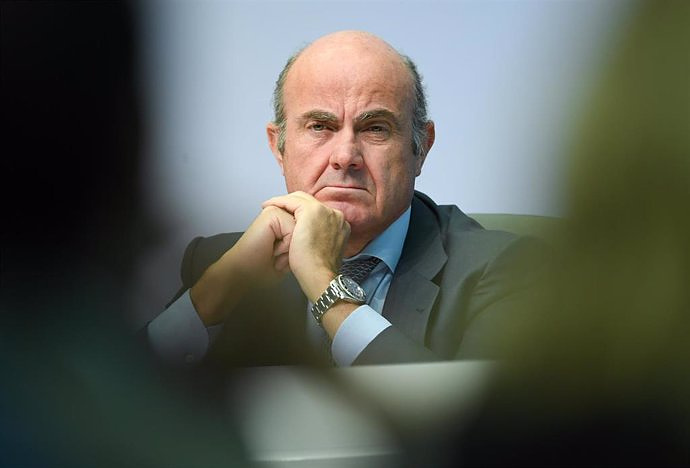721 renewable MW and 3,150 new public charging points will be promoted
MADRID, 14 Jun. (EUROPA PRESS) -
The Council of Ministers, at the proposal of the Ministry for the Ecological Transition and the Demographic Challenge, has approved a Royal Decree regulating the direct granting of subsidies for the implementation of decarbonisation strategies in the Canary and Balearic Islands, endowed with 499 million euros charged to the Recovery, Transformation and Resilience Plan (PRTR) for the execution of the 'Next Generation EU' funds.
Specifically, the actions planned for the decarbonisation of the islands have a budget of 700 million euros in the PRTR, of which almost 500 million euros - those regulated by this royal decree - will be managed by the island governments, while the 200 The remaining million euros will be managed by the Institute for Energy Diversification and Saving (IDAE), a body dependent on the Ministry.
With this measure, the Government indicated that it wants to "accelerate decarbonisation in the Canary Islands and the Balearic Islands in a socially fair and environmentally responsible manner, with special sensitivity to land use -given the territorial restrictions of the archipelagos- and the development of innovative projects associated with storage, demand management or the integration of renewables".
Likewise, actions linked to the water cycle, one of the sectors with the highest energy consumption on the islands, and the deployment of recharging infrastructure for electric vehicles are contemplated.
The autonomous communities will be in charge of carrying out the actions, which will have a real transformative impact on the energy field of the two archipelagos, since the renewable power installed in these territories will be more than doubled, so that they exceed a third of renewable contribution to its electricity 'mix', while self-consumption will be multiplied by six in the Balearic Islands and by ten in the Canary Islands. Likewise, maritime routes between islands will be electrified.
Both strategies have been designed jointly by the Ministry led by Teresa Ribera and the regional governments after addressing the specificities of each archipelago and will be subject to a schedule for meeting the planned milestones, the existence of projects and their proper execution.
Last February, the third vice president and minister for the Ecological Transition and Demographic Challenge, Teresa Ribera, presented the plan in the Canary Islands and in March she did so in the Balearic Islands. Since then, the teams from the Ministry and the regional governments have worked on the technical texts and will continue to cooperate to achieve the objectives of the energy transition in the islands.
Of these almost 500 million euros, the Canary Islands will receive some 302 million euros, and the Balearic Islands another 197 million euros, which will mobilize total investments of some 1,000 million euros in the two regions. Likewise, the deployment of the recharging infrastructure on the islands will be accelerated, with the installation of 3,150 new public points in both territories.
In the specific case of the Canary Islands, they will mobilize a total investment of more than 479 million euros, which will promote a renewable capacity of 265 megawatts (MW) and 1,150 new public charging points, which means quadrupling the current figure and reaching 16% of the target set for 2030.
For its part, in the Balearic Islands it is expected to mobilize investments of more than 521 million and the islands will increase their renewable power with more than 242 additional MW -10% of their electricity demand-. In addition, 2,000 new public charging points will be installed, which means tripling the existing ones and establishing a ratio of one point for every 300 vehicles, approximately.
The island systems present relevant specificities in the energy field that make their decarbonisation difficult, such as a lower availability of territory, challenges in the water-energy binomial or high generation costs that affect the consumer's electricity bill.
For this reason, the National Integrated Energy and Climate Plan 2021-2030 (PNIEC) provides for specific measures in energy transition aimed at the islands, while the PRTR dedicates Investment 2 of Component 7 to "sustainable energy on the islands", with a total of 700 million.

 Exploring Cardano: Inner Workings and Advantages of this Cryptocurrency
Exploring Cardano: Inner Workings and Advantages of this Cryptocurrency Seville.- Economy.- Innova.- STSA inaugurates its new painting and sealing hangar in San Pablo, for 18 million
Seville.- Economy.- Innova.- STSA inaugurates its new painting and sealing hangar in San Pablo, for 18 million Innova.- More than 300 volunteers join the Andalucía Compromiso Digital network in one month to facilitate access to ICT
Innova.- More than 300 volunteers join the Andalucía Compromiso Digital network in one month to facilitate access to ICT Innova.-AMP.- Ayesa acquires 51% of Sadiel, which will create new technological engineering products and expand markets
Innova.-AMP.- Ayesa acquires 51% of Sadiel, which will create new technological engineering products and expand markets Student camps will continue in the face of CRUE's "empty promises" and demand a "total break" with Israel
Student camps will continue in the face of CRUE's "empty promises" and demand a "total break" with Israel The Generalitat expresses its "total" opposition to BBVA's takeover of Sabadell
The Generalitat expresses its "total" opposition to BBVA's takeover of Sabadell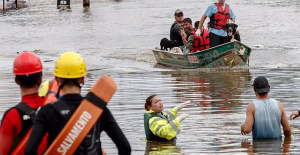 Death toll rises to 107 from floods caused by heavy rains in southern Brazil
Death toll rises to 107 from floods caused by heavy rains in southern Brazil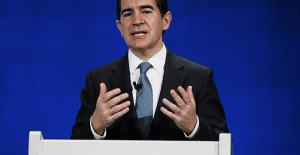 BBVA is willing to assume the possible reputational risk if the takeover bid for Sabadell does not go ahead
BBVA is willing to assume the possible reputational risk if the takeover bid for Sabadell does not go ahead How Blockchain in being used to shape the future
How Blockchain in being used to shape the future Not just BTC and ETH: Here Are Some More Interesting Coins Worth Focusing on
Not just BTC and ETH: Here Are Some More Interesting Coins Worth Focusing on Expociència expects to receive more than 4,000 visitors in the Science Park of the University of Valencia
Expociència expects to receive more than 4,000 visitors in the Science Park of the University of Valencia They develop devices for the precise diagnosis of cancer patients
They develop devices for the precise diagnosis of cancer patients UMH researchers are working on a high-quality apricot crop that requires less irrigation water
UMH researchers are working on a high-quality apricot crop that requires less irrigation water The UPV develops an application to improve the quality of life of patients with glioblastoma
The UPV develops an application to improve the quality of life of patients with glioblastoma A million people demonstrate in France against Macron's pension reform
A million people demonstrate in France against Macron's pension reform Russia launches several missiles against "critical infrastructure" in the city of Zaporizhia
Russia launches several missiles against "critical infrastructure" in the city of Zaporizhia A "procession" remembers the dead of the Calabria shipwreck as bodies continue to wash up on the shore
A "procession" remembers the dead of the Calabria shipwreck as bodies continue to wash up on the shore Prison sentences handed down for three prominent Hong Kong pro-democracy activists
Prison sentences handed down for three prominent Hong Kong pro-democracy activists ETH continues to leave trading platforms, Ethereum balance on exchanges lowest in 3 years
ETH continues to leave trading platforms, Ethereum balance on exchanges lowest in 3 years Investors invest $450 million in Consensys, Ethereum incubator now valued at $7 billion
Investors invest $450 million in Consensys, Ethereum incubator now valued at $7 billion Alchemy Integrates Ethereum L2 Product Starknet to Enhance Web3 Scalability at a Price 100x Lower Than L1 Fees
Alchemy Integrates Ethereum L2 Product Starknet to Enhance Web3 Scalability at a Price 100x Lower Than L1 Fees Mining Report: Bitcoin's Electricity Consumption Declines by 25% in Q1 2022
Mining Report: Bitcoin's Electricity Consumption Declines by 25% in Q1 2022 Oil-to-Bitcoin Mining Firm Crusoe Energy Systems Raised $505 Million
Oil-to-Bitcoin Mining Firm Crusoe Energy Systems Raised $505 Million Microbt reveals the latest Bitcoin mining rigs -- Machines produce up to 126 TH/s with custom 5nm chip design
Microbt reveals the latest Bitcoin mining rigs -- Machines produce up to 126 TH/s with custom 5nm chip design Bitcoin's Mining Difficulty Hits a Lifetime High, With More Than 90% of BTC Supply Issued
Bitcoin's Mining Difficulty Hits a Lifetime High, With More Than 90% of BTC Supply Issued The Biggest Movers are Near, EOS, and RUNE during Friday's Selloff
The Biggest Movers are Near, EOS, and RUNE during Friday's Selloff Global Markets Spooked by a Hawkish Fed and Covid, Stocks and Crypto Gain After Musk Buys Twitter
Global Markets Spooked by a Hawkish Fed and Covid, Stocks and Crypto Gain After Musk Buys Twitter Bitso to offset carbon emissions from the Trading Platform's ERC20, ETH, and BTC Transactions
Bitso to offset carbon emissions from the Trading Platform's ERC20, ETH, and BTC Transactions Draftkings Announces 2022 College Hoops NFT Selection for March Madness
Draftkings Announces 2022 College Hoops NFT Selection for March Madness


